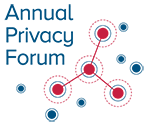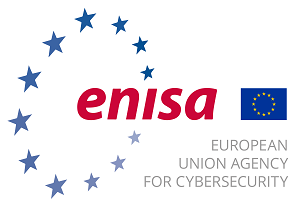Call for Papers
The General Data Protection Regulation[1] applies across the European Union since over one year and is part of a modernised EU data protection legislative framework. Additionally, the forthcoming Regulation on Privacy and Electronic Communications is expected to give new impetus to the way privacy is protected in electronic communications and further complement the aforementioned framework.
In the light of the above, ENISA, DG CONNECT and the University of Oslo are organizing the Annual Privacy Forum (APF) 2021.
In APF 2021, we invite papers presenting original work on the themes of data protection and privacy and their repercussions on technology, business, government, law, society, policy and law enforcement. An inter-disciplinary approach is high in demand to contribute to bridging the gap between research, business models and policy, much like proposing new models and interpretations.
Submission can be made through Easychair at https://easychair.org/conferences/?conf=apf2021
Authors should consult Springer’s authors’ guidelines and use their proceedings templates, either for LaTeX or for Word, for the preparation of their papers. Springer encourages authors to include their ORCIDs in their papers. In addition, the corresponding author of each paper, acting on behalf of all of the authors of that paper, must complete and sign a Consent-to-Publish form. The corresponding author signing the copyright form should match the corresponding author marked on the paper. Once the files have been sent to Springer, changes relating to the authorship of the papers cannot be made.
[1] http://data.europa.eu/eli/reg/2016/679/2016-05-04
Research – Opinion Papers
APF 2020 seeks contributions from policy makers and implementers, Data Protection Authorities, industry, consultants, researchers, NGOs and as well as civil society. Opinion and interpretation papers are expected to reflect the views of the author(s). Submissions can be up to 8000 words long, excluding bibliography and appendices. Both research and opinion papers should deal with at least one of the following aspects:
- Implementation Aspects:
- Privacy "by design" and "by default" paradigms
- Adoption of PETs in contemporary digital services
- State-of-the-art and development of PETs
- Technical solutions for data portability and procedural issues
- Technical solutions for preventing online and mobile tracking
- Technical solutions for the enforcement and the implications of the subject’s right, e.g. right to erasure, access and correction
- Information and consent in online environments: practical solutions and implementations
- Modelling of data protection and privacy requirements, such as:
- Machine readable representations and automatic evaluation of policies
- Enabling transparency: technological and organizational challenges
- Aspects of privacy in artificial intelligence, autonomous agents, Internet of Things
- Practical implementation of GDPR and ePrivacy requirements
- Sustainable business models and trustworthiness assessment for privacy friendly online services
- Aspects of privacy impact and risk assessment
- Security measures for the protection of personal data
- Data protection certification
- Economics of privacy and personal data
- Issues of third countries interest
Student Papers
In order to encourage participation of young researchers, the submission of papers by students is encouraged. These papers will be treated as thoroughly as full papers, but can be shorter (up to 4000 words, excluding bibliography and appendices) and reflect novel thinking that might not have been fully elaborated just yet.
Short Papers
In addition to student papers, short papers are also invited as this call is open to anyone who has a sketch of an idea, opinion or a call for collaboration. Short papers should be up to 4000 words, excluding bibliography and appendices and should not overlap with work published elsewhere.
Review and Publication
Submissions of original work are invited; papers must not overlap substantially with work already published or simultaneously submitted to a journal or a proceedings bearing venue. Submissions must be drafted in English and need to comply with the Springer LNCS style guide, which can be found here and here. Within the submitted manuscript, authors are advised to metion below the title whether their submission is a research/opinion, a student or a short paper.
All submissions will be thoroughly reviewed by our PC members. We aim at minimum 3 reviews per paper. Authors must submit their papers according to conditions and within the deadline indicated below.
Proceedings will be published by Springer LNCS.
Submissions can be made through Easychair at https://easychair.org/conferences/?conf=apf2021.
Important Dates
|
Submission of full papers: |
7 February 2021 23:59 GMT 21 February 2021 23:59 GMT |
|
Notification to author(s): |
4 March 2021 16 March 2021 |
|
Camera-ready copies: |
31 March 2021 5 April 2021 |
|
APF 2020 taking place on: |
17-18 June 2021 |




